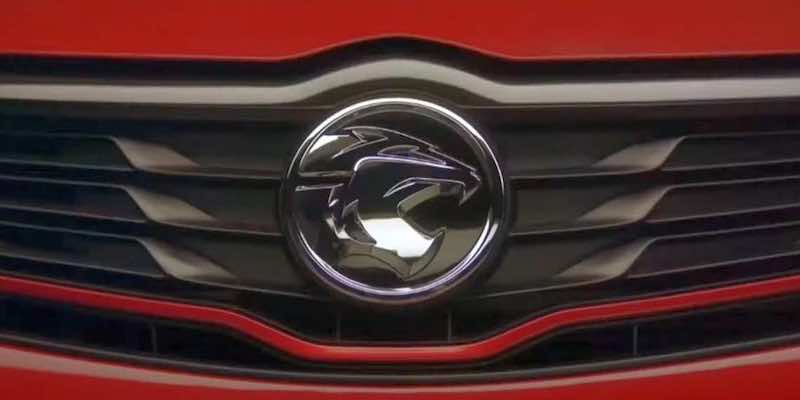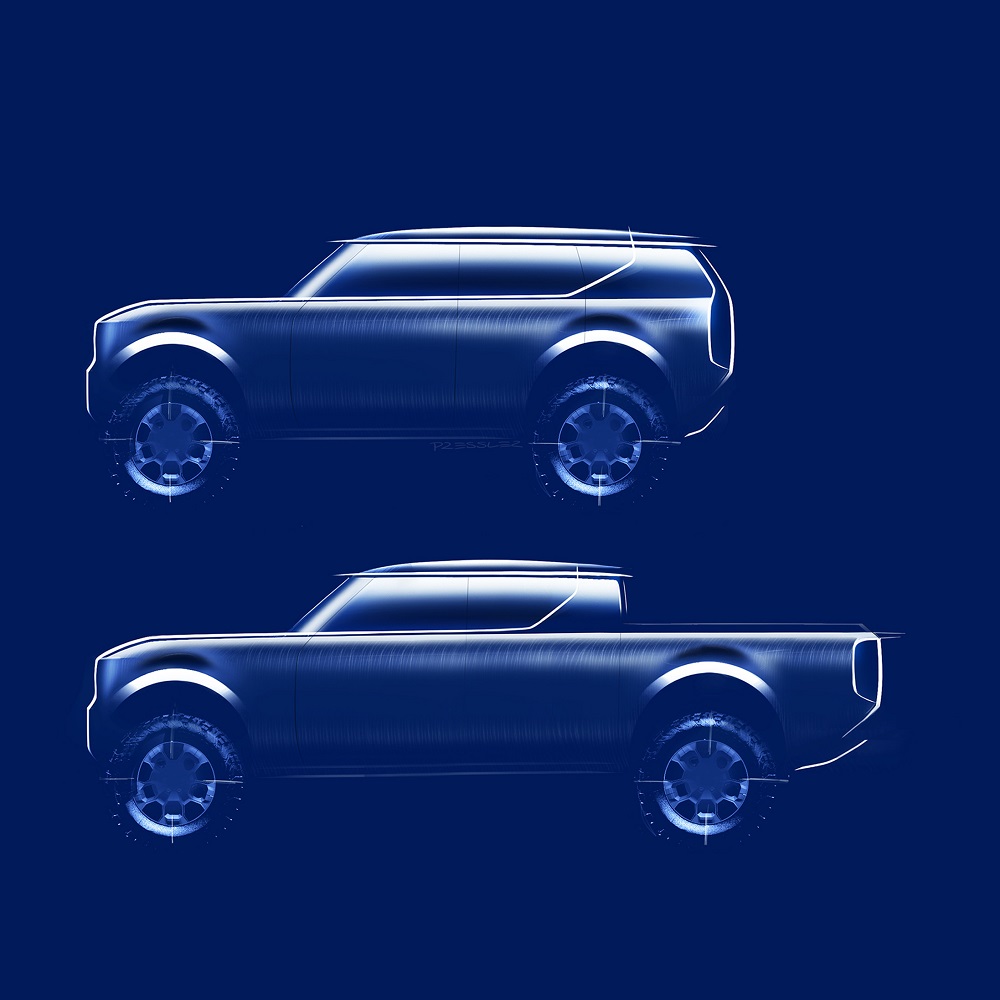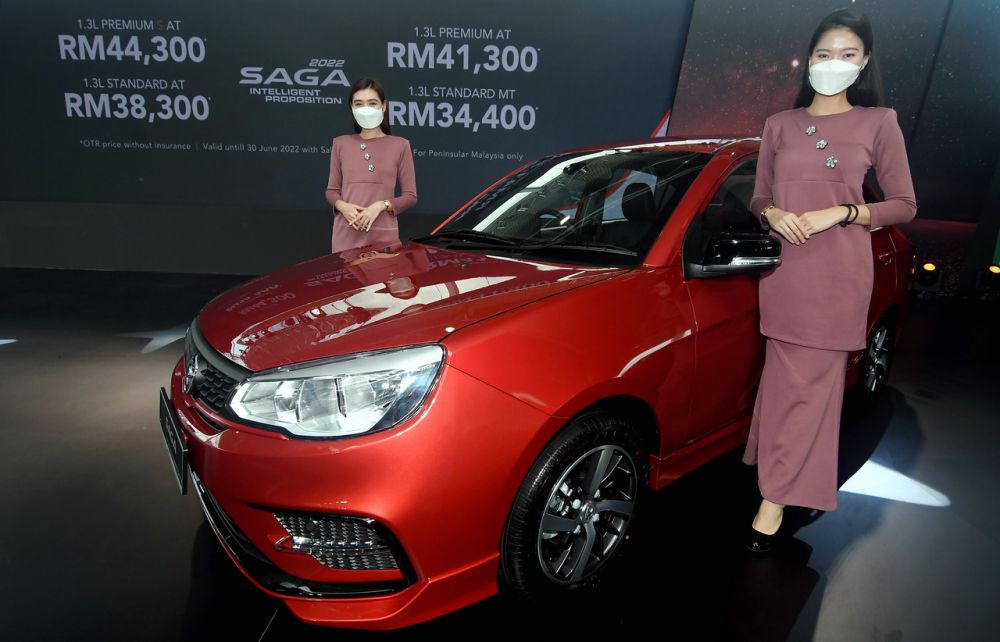KUALA LUMPUR, April 3 – A research article published by Hong Leong Investment Bank (HLIB) on Proton helped shine some light on the national carmaker’s electric vehicle (EV) plans. According to the bank’s analyst Daniel Wong, Proton is targeting a 2027 launch date for its EV. Between now and then, Wong said that Proton will take a “minor stepping stone” in the hybrid segment.
This seems to indicate that Proton will most likely offer a basic form of a hybrid powertrain like a mild-hybrid system. This contradicts Proton Edar CEO, Roslan Abdullah’s comment to StarBizWeek saying that Proton is also considering plug-in hybrid vehicles. Abdullah made this comment sometime in November 2021, but it seems that plans have changed now with Proton focusing its resources on EV development.
Now, Proton themselves have yet to make an official statement regarding an EV, so it seems that there is no concrete plan yet. However, we can make some educated guesses based on the ongoing partnership between Geely and Proton.
As such, the Proton EV could be built on Geely’s open-source, Sustainable Experience Architecture. Essentially, it is a modular EV platform that will be used by Geely Holding portfolio brands as well as by Smart Automobile.

Now, this won’t be Proton’s first attempt at making an EV because back in 2015, the national carmaker showcased an Iriz EV concept at the annual International Greentech & Eco Products Exhibition and Conference Malaysia (IGEM).
The concept car was equipped with a single motor producing 115hp and 360Nm of torque. It was paired with a 39.6kWh battery developed by LG. This combination provided the EV with a range of 300km based on the NEDC test cycle, which was impressive for its time. Recharging the battery was also quick as the Iriz EV concept supported 50kW DC fast charging, which Proton claims can take the battery from 40 to 100 per cent in just 15 minutes.
Normally when converting a platform designed for an internal combustion engine to support an electric powertrain, the battery is mounted at the back thus eating into boot space. But the batteries on the Iriz EV concept were mounted under the floor, thus making no such compromises. But why Proton did not proceed with the development of the EV is unknown. If I had to guess, it could have been deterred by the high development cost.
Will Proton’s late entry affect its sales?
Well, Abdullah also told StarBizWeek that “the EV sector still has a long way to go, as the building of a charging infrastructure to help support larger numbers of EVs is a considerable obstacle that needs to be overcome.” There is some truth to his statement as the EV charging infrastructure in Malaysia is still in its infancy stage. Currently, charging stations can primarily be found in major cities like Kuala Lumpur.

Companies like TNB, Shell, BMW, and Petronas are already working on expanding the EV charging infrastructure in Malaysia. Nevertheless, it will take a couple of years before the charging infrastructure can be easily accessed by the mass population. Therefore, Proton might not be that worried today about entering the EV race in 2027.
But here’s the thing, perhaps 2027 is the ideal time when EVs are widely accepted, and most teething issues have been resolved. But the risk is that other carmakers might have taken a stronger foothold and reputation in the Malaysian EV market. For instance, Perodua has officially announced that it’s working on an EV with its partner Daihatsu. The carmaker said an EV roadmap will be announced later this year, while Daihatsu has a plan to release its first EV in 2025.
If Perodua’s roadmap aligns with Daihatsu’s, it could launch an EV almost two years ahead of Proton. This would give the company a headstart in creating brand awareness, but more importantly, it can sell its EVs without much competition in the budget EV segment. Therefore, Proton might have a huge challenge trying to sway potential EV customers away from Perodua in 2027.
Now a lot can happen within these few years and Proton might end up bringing the launch date forward. But the delay has already caused Proton to lose the title of being the first carmaker to assemble EVs in Malaysia. That title has been snapped up by Volvo who has announced it will assemble the XC40 Recharger Pure Electric in Malaysia which also will be exported to other ASEAN markets.
As for the mild-hybrid powertrain, Proton showcased a 1.5-litre TGDi engine with a 48-volt belt-driven starter generator (BSG) back in November 2021. These types of systems only provide a temporary boost of power when needed. The vehicle cannot run on a pure electric mode like you can with a hybrid vehicle. Rumour has it that this powertrain will make its debut on a seven-seater SUV, which is said to be the Proton X90. However, Proton had to delay the launch of the new model to next year due to supply chain issues and a backlog of orders, as reported by The Edge.
Back in January this year, Proton has also signed a Memorandum of Agreement with Smart Automobiles Company to be the official importer, distributor, and dealer of Smart vehicles in Malaysia and Thailand. According to Proton Chairman Syed Faisal Albar, the collaboration with Smart will allow the carmaker to gain experience in the selling, servicing, and charging of New Energy Vehicles (NEVs) and to build up the skillsets required to be a force in ASEAN’s rapidly expanding NEV sector. He added that it is also an opportunity to tap on Smart’s customer base which will open more opportunities for the Proton brand. — SoyaCincau






















